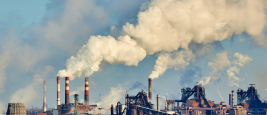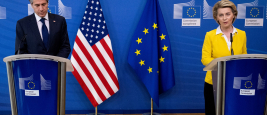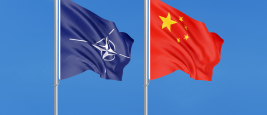The world’s largest emitting countries are reconsidering the role of carbon pricing instruments and increasingly looking at carbon border adjustment mechanisms (CBAMs) to address leakage concerns. This renewed momentum should trigger a broader discussion on how to make trade policies...

China
As the first stop of his first European tour since the Covid-19 pandemic, Chinese President Xi Jinping will pay a state visit to France on May 6 and 7, 2024, to celebrate the sixtieth anniversary of the establishment of diplomatic relations between the two countries. One year after President Macron's travel to China, the two heads of state will exchange on the war in Ukraine, the situation in the Middle East, trade relations in the context of EU’s “de-risking”, and other global issues such as climate change.
When dealing with China, Japan has assumed a position that protects its economic cooperation with Beijing, ensures Chinese aggressive strategies are deterred and guarantees its overall economic security: security of supply, autonomy in technological development, etc.
China is now an undeniable heavyweight on the international scene, wielding a remarkable range of political strategies. Studying its position in the surrounding area of Southeast Asia in relation to Japan, Korea, Taiwan, and the Association of Southeast Asian Nations (ASEAN) countries, as well...
In recent years, the People's Republic of China's policy towards Taiwan has become increasingly aggressive.
The series For All Mankind (2019) is a fictional alternate history that imagines a world where the Soviet Union was the first power to send an astronaut to the moon. From that starting point, the two rival superpowers compete to establish their own lunar station.
Tensions at sea are growing and multiplying both in the East and the South China Seas.
Analysis from 17 countries and EU institutions reveals that Chinese soft power in Europe – defined as the ability to influence preferences through attraction or persuasion – has seen better days.
To respond to growing global competition, the EU has made notable progress on the internal dimension of technology policy over the past 3 years. It is now also seeking to adapt its foreign policy
The Trump administration has been very actively designing and implementing a new strategy for reliable supply of critical minerals which aims at reducing the country’s vulnerabilities and becoming a leader in this field.
When we look back and think about some of the decisive moments in the West’s attitude towards China, it is rather symbolic that all goes back to Tiananmen Square, 1989.












